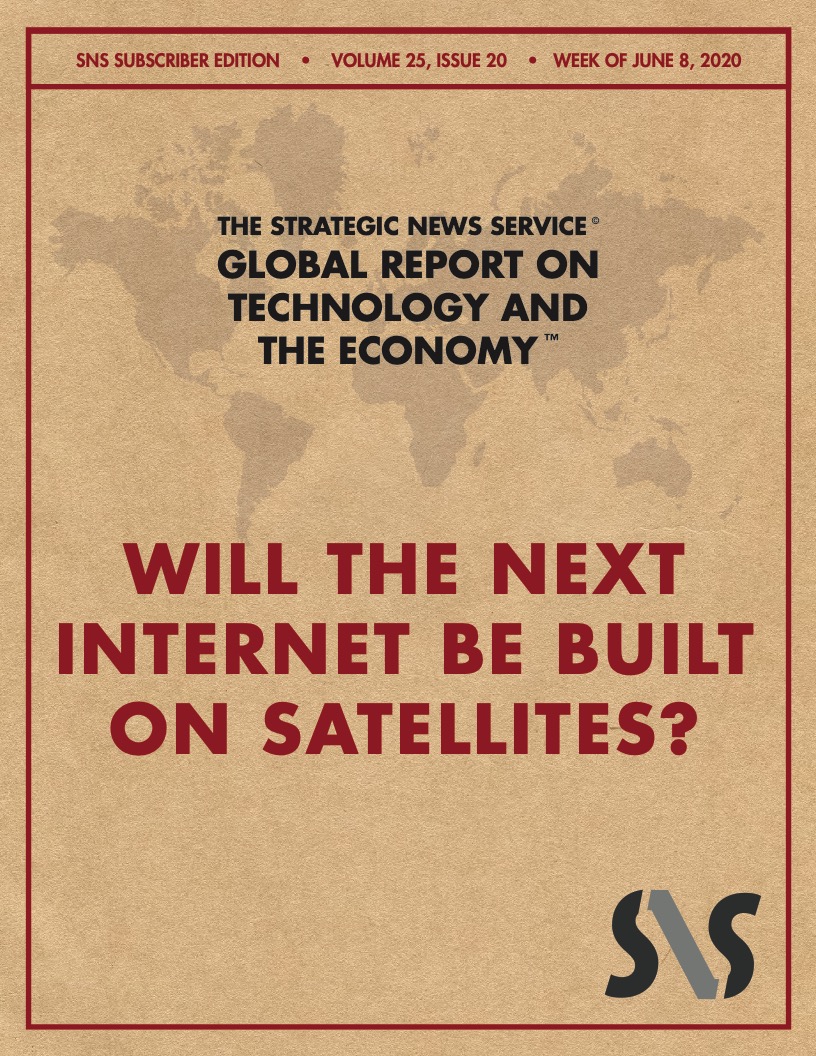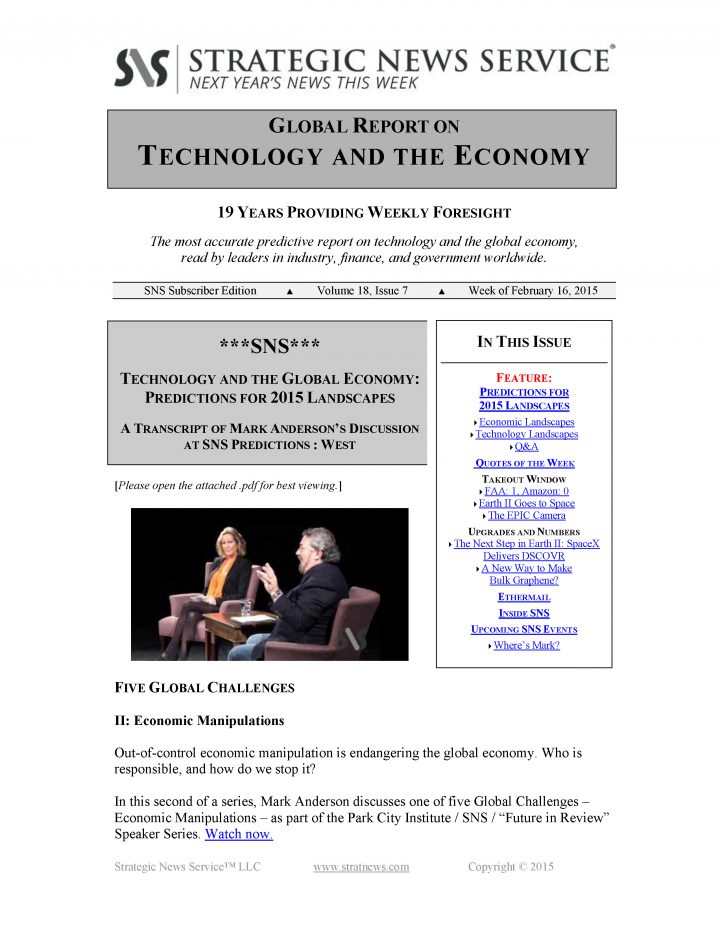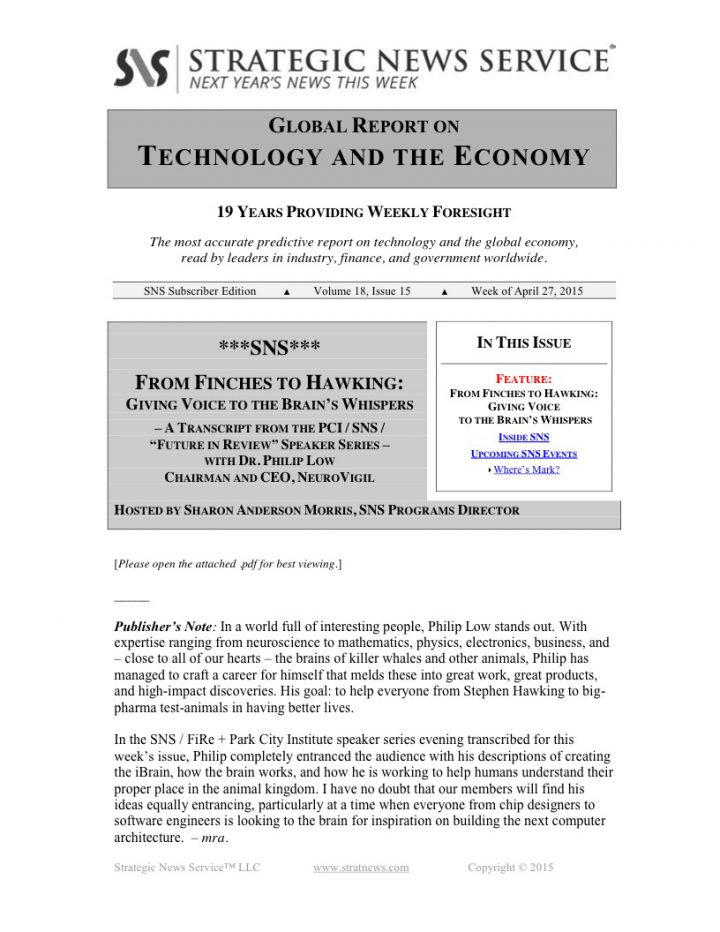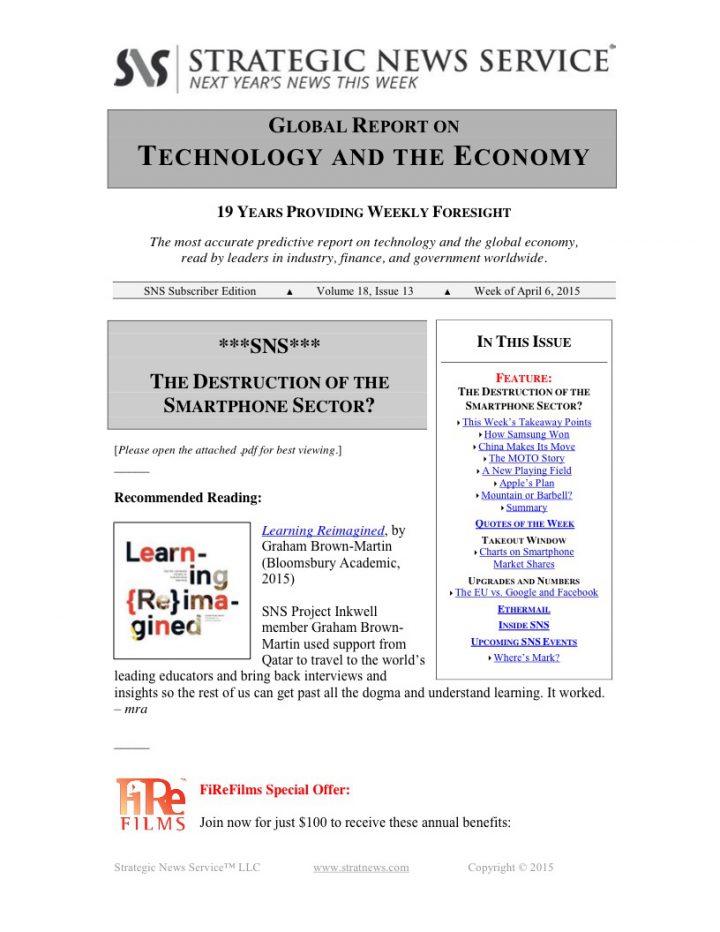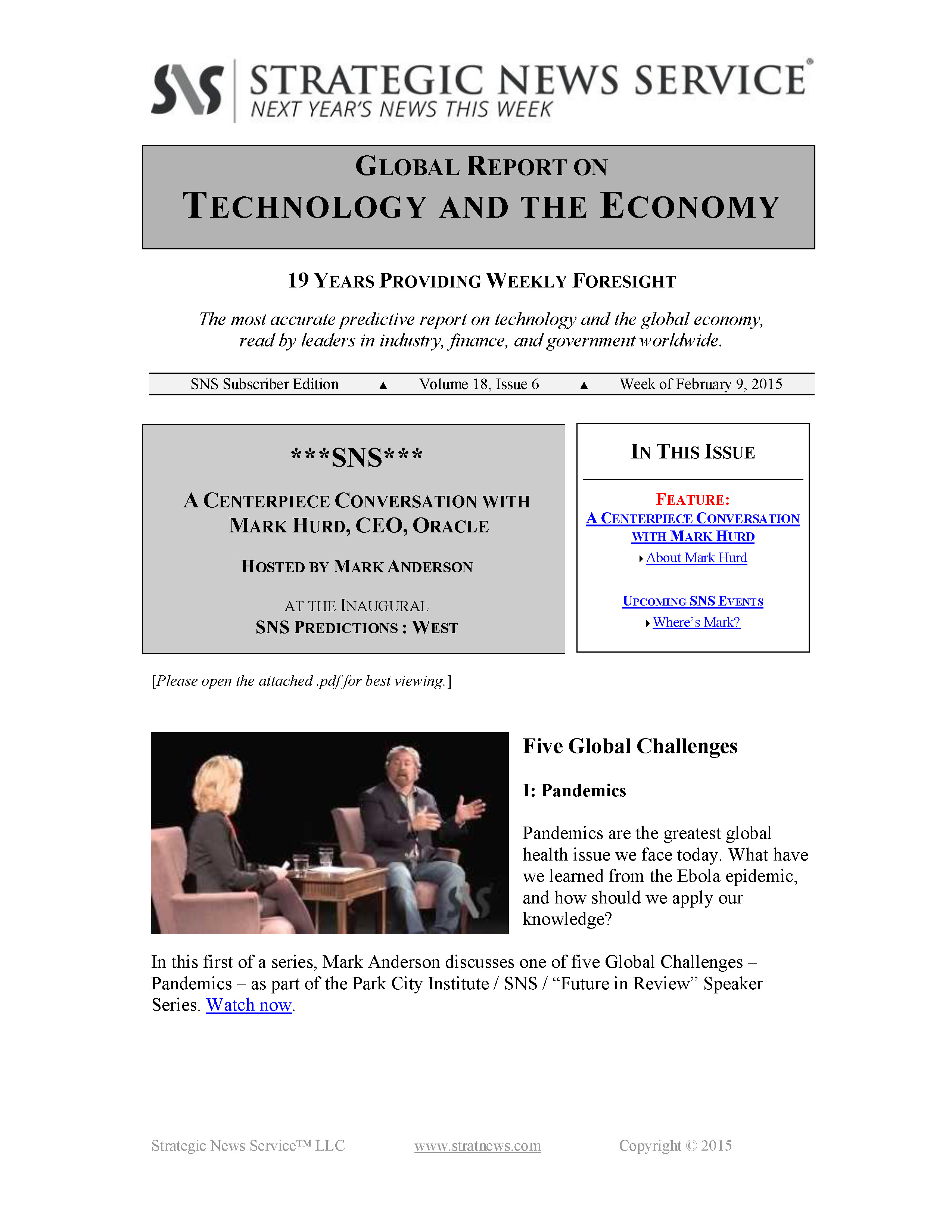In This Issue
Vol. 25 Issue 20
Will the Next Internet Be Built on Satellites?
Mark Dankberg, Chair and CEO, Viasat
With host Mark Anderson, Chair, Future in Review and Chair, Strategic News Service
• About Mark Dankberg
—
Will the Next Internet Be Built on Satellites?
Mark Dankberg, Chair and CEO, Viasat
With host Mark Anderson, Chair, Future in Review and Chair, Strategic News Service
FiRe 2019 Conference
Friday, October 11, 2019 – The Lodge at Torrey Pines – La Jolla, California
_____
This conversation has been lightly edited.
_____
Mark Anderson: Good to see you; thanks for being here.
Mark Dankberg: Sure, thanks for the invitation.
MA: You’re welcome. We’ve been having quite a bit of fun, in lots of different ways. All technical, basically, except for last night, and the night before. [Laughter]
I’m going to start by saying Viasat has been around a long time. You’re the founder, chairman, CEO … But I’m going to confess that I didn’t know very much about it, and it’s my fault; it’s a big company. If you’re a San Diegan – you came out of Linkabit, right? And so –
MD: Qualcomm. [Pub. Note: Qualcomm came from Linkabit.]
MA: Qualcomm – so there are two big companies now, I think, in town. And you’re one. It’s great to have you here.
We came and sat with Mark, I don’t know, a few months ago, and had a very quick, intense conversation that we’ll rehearse again today in more detail. Our reason was, with the advent of all the activity that’s happening now with launch costs and in changes in designs for constellations and … We have, I think, here, probably the most qualified guy on earth to talk about it.
Mark’s been at this all of his life, basically, and has done everything you can think of with satellites. I think that it’s helpful for everybody here, as we just go into this next era – it’s all kind of old stuff for you, but it’s not old stuff for all of us – to explain … I know you have a business-model view of all this, which we’ll get to in a minute. But if you could start by just laying out the landscape: what’s happening right now, what do you see in terms of the basic story of communications, satellites, numbers, orbits?
“Just because you’re doing it from space does not eliminate geography.”
MD: Well, first of all, one thing is it’s clear there’s enormous demand, and there’s enormous value, for being connected. People – we talk about 4 billion people in the world not being connected. And if you look at the models by which connectivity propagates through the world, we’re not really on a path to be able to connect these people, either for geographic or economic reasons. So there’s a big opportunity there for satellites – it’s not a given.
I do think that the opportunity requires this intersection of technology, economics for sure – a lot of this is an economic problem – and then also geography. You can’t really talk about connectivity in any form without thinking about the geographic implications of that, whether it’s fiber or cable, wireless – geography is a huge factor in where you can provide connectivity, what the economic incentives are. Just because you’re doing it from space does not eliminate geography as well.
There are a couple other things that are happening, I think, that are really important in terms of creating the opportunity for satellites. I would say one is the existence of unlicensed services, or Wi-Fi. So before, if you were a satellite operator and you wanted to get to the market, for communications purposes you had to go through some licensed telecommunications company. Now you can just put down a hotspot and you’re in business. You can relate directly to end users. That has huge implications in terms of the incentives and the opportunities for space.
Then the other really big one is the rise of over-the-top – because no matter where you go, one of the things people want is entertainment. And again, it used to be that if you wanted to deliver entertainment you were basically a middleman between the content owner and the user of that. Now you don’t need to have any broadcaster or aggregator. With over-the-top, again you just put down a hotspot, you’re connecting with people, you can provide pretty much any communications information or entertainment service. So that’s a big incentive.
MA: It’s game-changing.
….
Additional information
| Topics | |
|---|---|
| Focus Channels |
SKU: SNS-2020-06-09 - Need Help? Contact Us Leave Feedback
Categories: 2020 Issues, Back Issues
Tag: PDF Download

